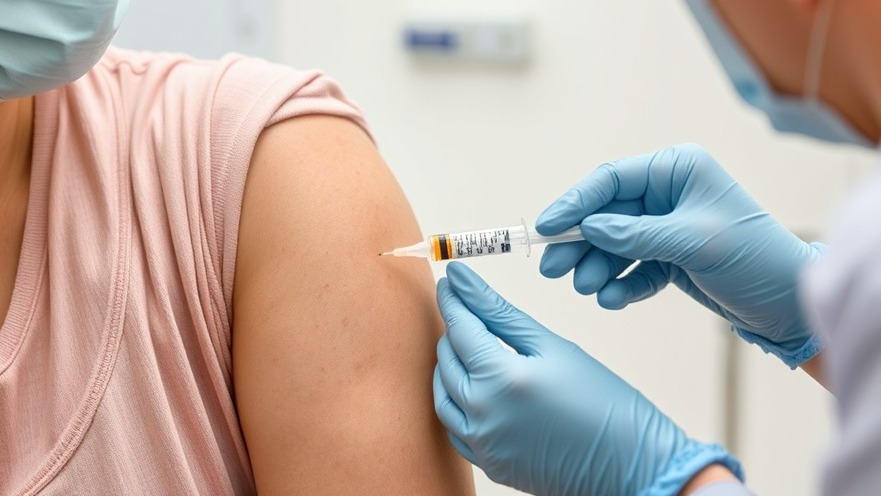
Understanding the Recent Measles Outbreak in Texas
The alarming resurgence of measles in Texas, where 159 cases have been confirmed, has brought public health to the forefront of discussions. Sadly, this outbreak has resulted in hospitalizations and even the tragic death of a school-aged child. This surge highlights critical community health concerns and underscores the importance of vaccination as a primary measure in preventing such outbreaks. As health professionals advocate for increased immunization rates, it's essential to explore why some choose alternative treatments over conventional vaccinations.
RFK Jr.'s Unconventional Treatments: Hope or Misinformation?
In response to the outbreak, Robert F. Kennedy Jr., the U.S. Health Secretary, suggested unconventional therapies for measles, including vitamin A, steroids, and antibiotics. While he has made claims of “good results” from these treatments, health experts rapidly countered that they should not be viewed as alternatives to vaccinations. Medical professionals emphasize that vaccines are the only proven defense against measles, an argument that RFK Jr. seems to complicate with his promotion of these alternative options.
The Vital Role of Vaccinations in Preventing Measles
Vaccination remains the cornerstone of public health efforts against measles. The measles-mumps-rubella (MMR) vaccine is highly effective, reducing the risk of contraction by approximately 97%. It not only protects the vaccinated individual but also contributes to herd immunity—imperative for protecting those who cannot be vaccinated due to medical reasons.
Complications of Misinformation in Health Communication
While Kennedy advocates for nutritional support and alternative therapies, health experts warn that such messages can distort public perceptions regarding vaccination. Misunderstandings surrounding the necessity and efficacy of vaccination not only jeopardize individual health but also community welfare. Dr. Sue Kressly, president of the American Academy of Pediatrics, expressed grave concerns about the dangers of promoting vitamin A as a substitute for vaccination.
Nutrition and Immune Support: Myths Versus Facts
While nutrients like vitamin A play a role in supporting health, they cannot replace the effectiveness of vaccines. The CDC emphasizes that safe vaccination is critical in reducing measles morbidity and mortality. Relying on alternative treatments during this outbreak may lead families to develop a false sense of security regarding their children's health. As Kennedy's views gain traction, experts urge that vaccine promotion must remain a priority in health conversations.
Call to Action: Empowering Patient Choice in Healthcare
For concierge medical practice owners, this moment offers an opportunity to reinforce the significance of professional guidance in patient care. As misinformation circulates, practices can play a vital role in educating patients about the importance of vaccines while also supporting their health with proper nutritional advice and information. Engaging with patients to discuss their concerns empathetically can lead to more informed health choices, ultimately securing your practice's reputation as a trusted resource in healthcare.
 Add Row
Add Row  Add
Add 






Write A Comment